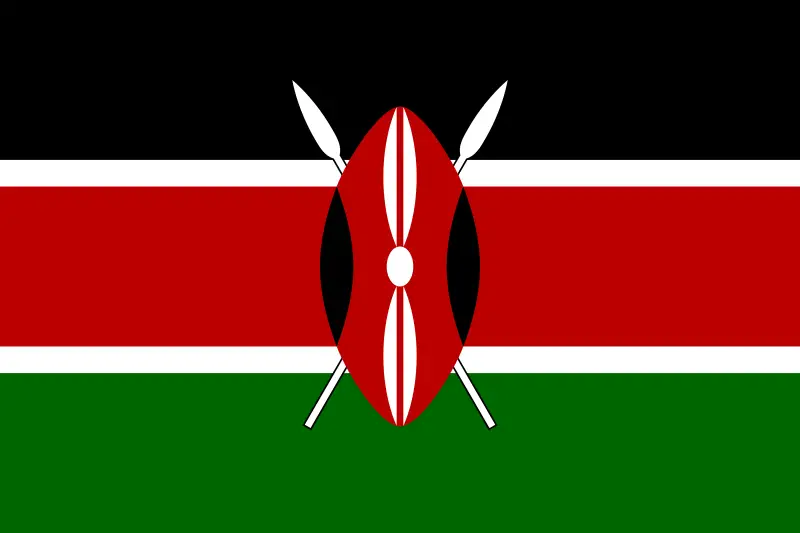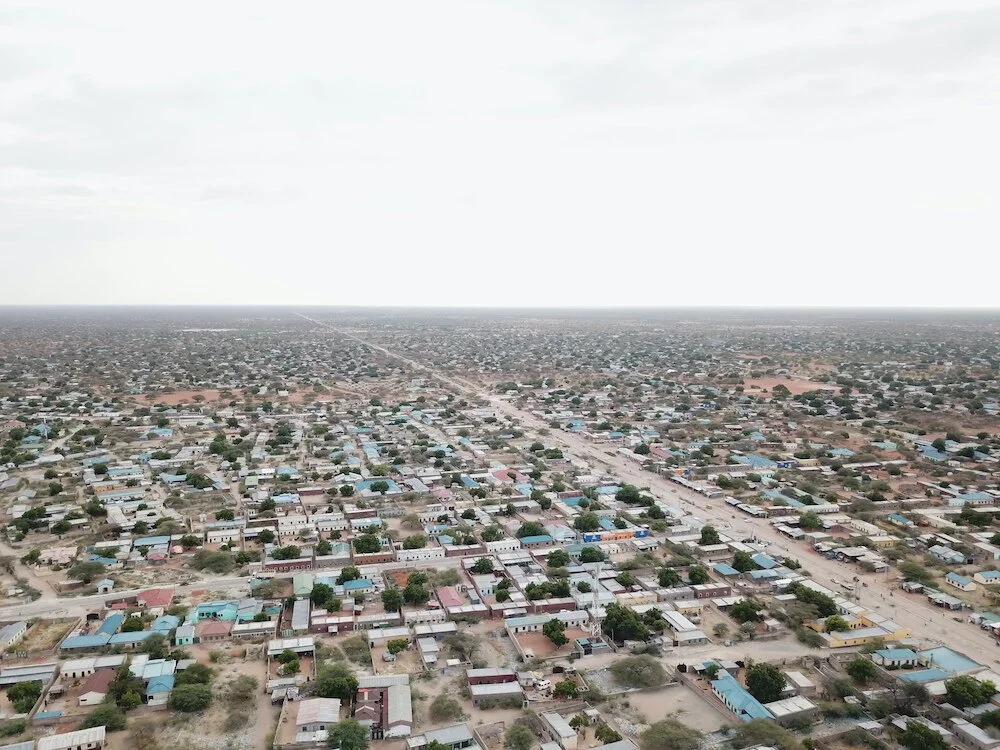Ah, Wajir Town – a vibrant hub nestled in the heart of Kenya’s North Eastern Province. With its charming mix of cultures and warm hospitality, this town is a hidden gem waiting to be explored. From its colorful markets showcasing an array of wares, to its bustling streets teeming with the rhythmic beat of daily life, Wajir Town invites you on an unforgettable journey through its rich history and captivating traditions. Join us as we traverse the labyrinthine alleyways, taste the tantalizing flavors of local cuisine, and immerse ourselves in the captivating tapestry that is Wajir Town. Welcome to a world of endless discovery!
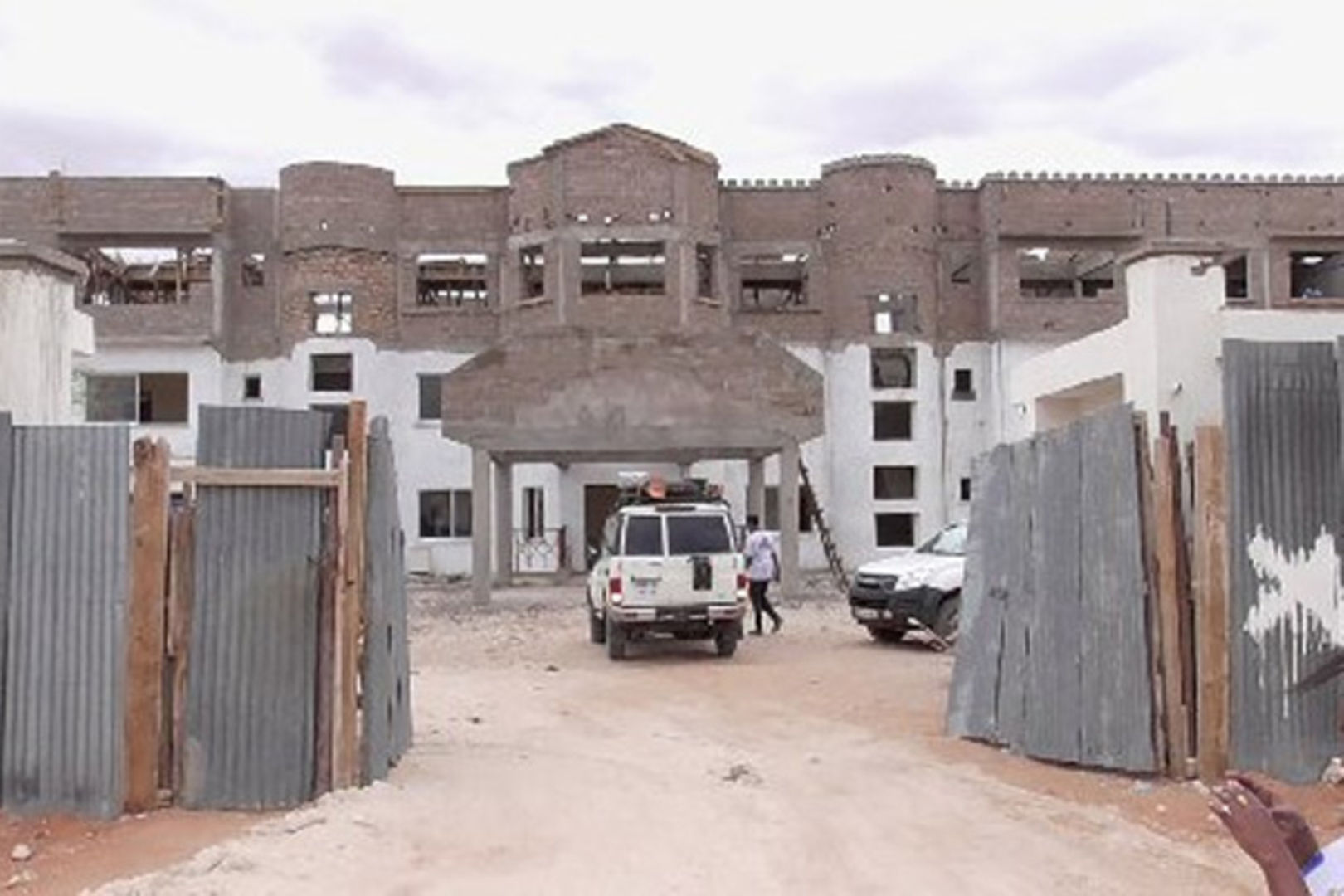
Geography
Location
Wajir Town is located in the northeastern part of Kenya, near the country’s border with Somalia. It is situated in Wajir County, which is one of the 47 counties of Kenya. The town is positioned on the eastern side of the Wajir River, which provides a vital water source for the residents and the surrounding areas.
Climate
Wajir Town experiences a hot and arid climate typical of the region. Summers are extremely hot, with temperatures often exceeding 40 degrees Celsius (104 degrees Fahrenheit). Winters are relatively cooler but can still be quite warm during the day. The town receives very little rainfall throughout the year, with most precipitation occurring between April and October.
Topography
Wajir Town is characterized by a flat and semi-arid landscape. The terrain mainly consists of sandy soil and sparse vegetation, such as acacia trees and drought-resistant shrubs. The town is surrounded by vast expanses of open grasslands, which provide grazing grounds for livestock.
History
Early Settlements
Wajir has a rich history dating back centuries. The region has been inhabited by various communities, including the Somali, Borana, Gabra, and Rendile tribes. These communities were traditionally nomadic pastoralists, relying on livestock rearing as their primary source of livelihood. The town served as a meeting point for different groups, facilitating trade and cultural exchange.
Colonial Era
During the colonial era, Wajir Town became part of the British East Africa Protectorate. The colonial administration introduced new systems of governance and established administrative structures in the town. The British presence brought some development to Wajir, such as the construction of schools and healthcare facilities.
Post-Independence
After Kenya gained independence in 1963, Wajir Town continued to grow and develop. The government invested in infrastructure projects, including road networks and improved access to clean water. Efforts were made to modernize the town and improve the living standards of its residents. Wajir County was established in 2013, further solidifying the town’s role as an administrative and economic center within the region.
Demographics
Population
Wajir Town has a diverse population with a mix of different ethnic groups. According to the latest census data, the town has a population of approximately 84,000 people. The population has been steadily increasing due to factors such as natural growth and migration from rural areas.
Ethnic Makeup
The majority of the population in Wajir Town belongs to the Somali ethnic group, which has a strong presence in the region. Other ethnic groups, including the Borana, Gabra, and Rendile, also contribute to the town’s multicultural fabric. This diversity adds to the vibrant social and cultural dynamics of Wajir.
Languages
The main language spoken in Wajir Town is Somali, which is widely understood and used for day-to-day interactions. However, due to the town’s diverse population, other languages such as Borana, Gabra, and Rendile are also spoken by their respective communities. Swahili and English are commonly used as secondary languages, especially in official and educational settings.
Infrastructure
Transportation
Wajir Town is well-connected to other parts of Kenya through a network of roads and airstrips. The town serves as a major transportation hub within the region, with regular bus services connecting it to neighboring towns and cities. The Wajir Airport provides domestic flights to Nairobi and other major Kenyan cities.
Healthcare Facilities
Wajir Town has several healthcare facilities that cater to the needs of its residents and the surrounding communities. The Wajir County Referral Hospital is the main healthcare center in the town and offers a range of medical services. Additionally, there are several health clinics and dispensaries spread throughout the town, ensuring accessibility to healthcare for all.
Educational Institutions
Education is given utmost importance in Wajir Town, with various schools and educational institutions serving the community. The town has a mix of public and private schools providing primary and secondary education. Wajir College of Education is a notable institution offering teacher training courses, contributing to the development of the education sector.
Utilities
Wajir Town has seen significant improvements in terms of utilities. The provision of clean water has been a priority, with the construction of water treatment plants and additional boreholes. Electricity coverage has also expanded in recent years, providing residents with reliable access to power. Efforts are being made to improve sanitation facilities, such as the construction of public toilets and sewage systems.
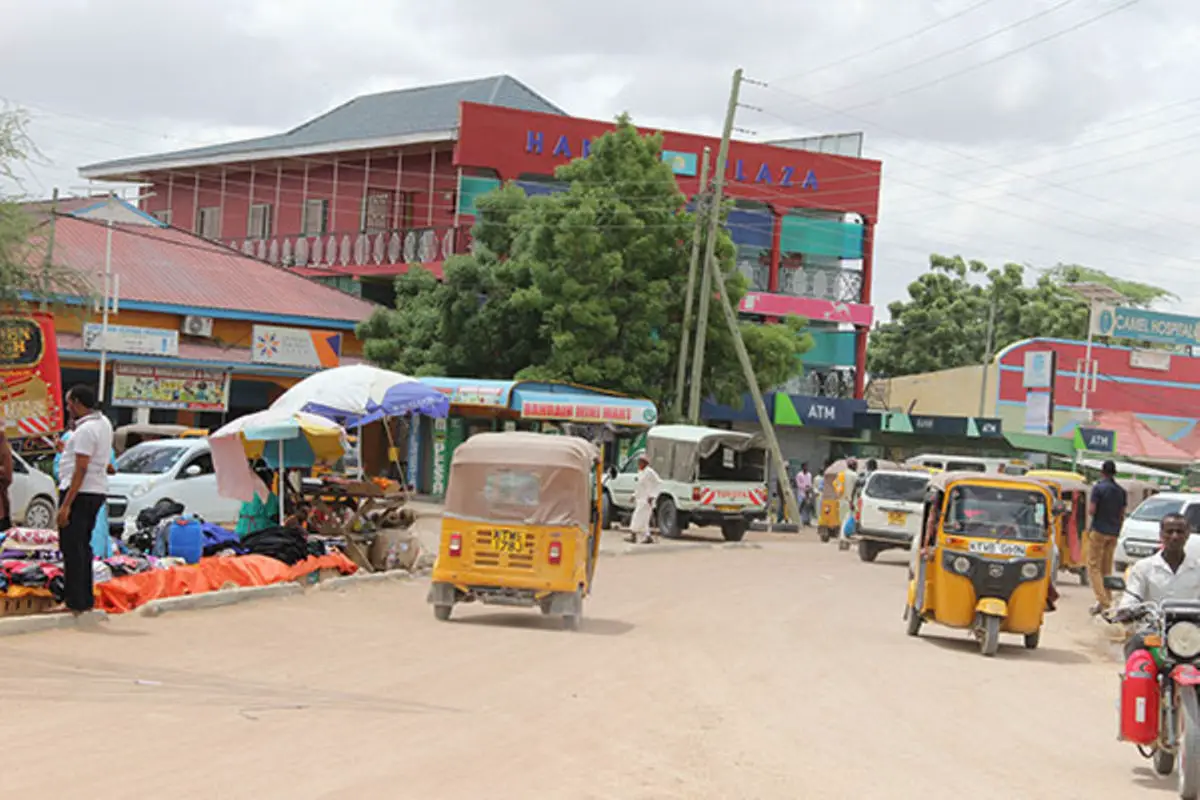
Economy
Agriculture
Despite the challenging arid climate, agriculture plays a significant role in the economy of Wajir Town. The town and its surrounding areas are known for the cultivation of crops such as maize, sorghum, and cowpeas, which are adapted to the harsh conditions. Irrigation techniques, such as drip irrigation, are increasingly being utilized to maximize crop yields.
Livestock
Livestock rearing is a traditional and essential economic activity in Wajir Town. The region is known for its vast herds of camels, cattle, sheep, and goats. Livestock farming provides income and sustenance for many households, with animals being sold for their meat, milk, and hides. The livestock market in Wajir Town is a bustling center of trade and commerce.
Trade and Commerce
Wajir Town serves as a commercial hub for the surrounding areas. The town hosts a vibrant marketplace where traders from various communities come together to buy and sell a wide range of goods. From livestock to fresh produce, clothing to household items, the market offers a bustling atmosphere and an opportunity for economic exchange. Additionally, small businesses and shops cater to the everyday needs of the town’s residents.
Tourism
Historical Sites
Wajir Town is home to several historical sites that offer insights into the region’s past. The Wajir Fort, built during the colonial era, stands as a symbol of the town’s history. The fort now serves as a museum, showcasing artifacts and exhibits that shed light on the town’s rich cultural heritage. The Bunaqale Mosque, a centuries-old mosque, is another notable historical site.
Natural Attractions
Wajir Town is surrounded by natural beauty, despite its arid landscape. The Wajir River, with its meandering course, provides a tranquil setting for relaxation and recreation. The riverbanks are popular spots for picnics and family outings. In addition, the nearby Arid Lands Resources Management Project (ALRMP), a nature reserve, offers opportunities for birdwatching and wildlife viewing.
Cultural Events
Throughout the year, Wajir Town hosts various cultural events that celebrate the region’s traditions and customs. Festivals such as the Wajir Cultural Festival showcase the diverse cultural heritage and talents of the local communities. The festival features traditional music, dance performances, art exhibitions, and vibrant displays of traditional attire.
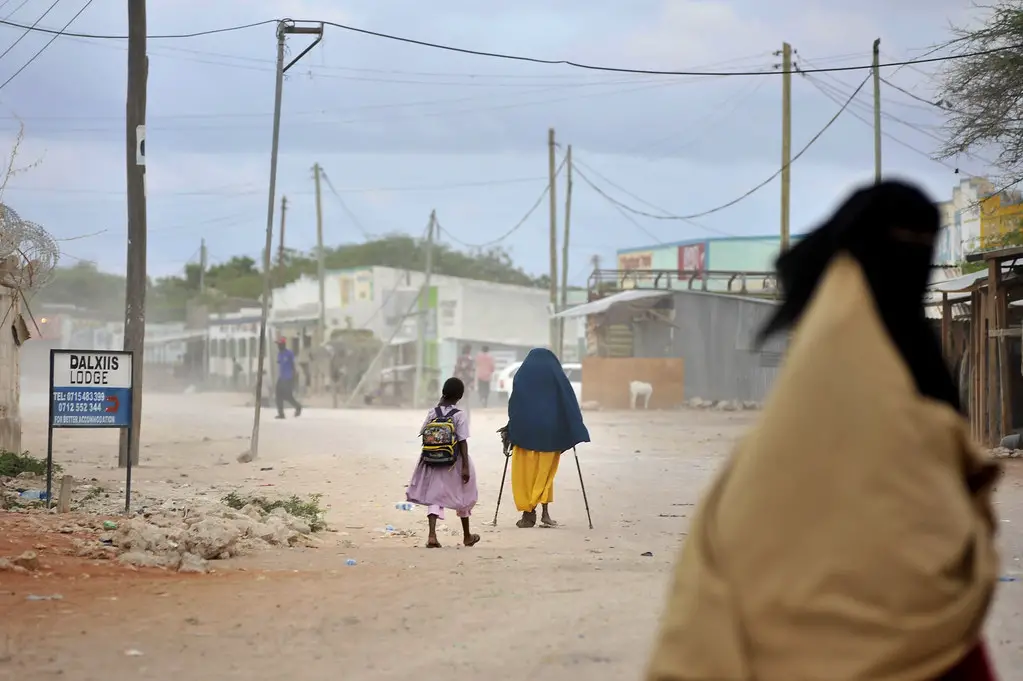
Government and Politics
Local Administration
Wajir Town is the administrative center of Wajir County. The town has its own local government authority that oversees day-to-day operations and service delivery. The local administration works closely with the county government to ensure the smooth functioning of various sectors, such as health, education, and infrastructure.
Political Representation
Wajir Town is represented politically at various levels of government. It is part of the larger Wajir County constituency, which elects its own representative to the national parliament. The elected representative, together with other leaders, advocates for the town’s interests and ensures that it receives its fair share of resources and development projects.
Culture and Society
Traditions and Customs
Wajir Town’s culture is deeply rooted in its traditional customs and practices. The local communities have a strong sense of identity and pride in their cultural heritage. Important customs, such as traditional weddings, naming ceremonies, and initiation rites, are still observed and celebrated. The emphasis on extended family and communal bonds is also a significant aspect of the town’s culture.
Religion
Islam is the predominant religion in Wajir Town, practiced by the majority of its residents. Mosques are an integral part of the town’s landscape, providing places of worship and fostering a sense of community among the faithful. The call to prayer resonates throughout the town, and Islamic festivals are celebrated with great enthusiasm and devotion.
Music and Art
Music and art play a vital role in the cultural expression of Wajir Town. Traditional music, such as the lively rhythms of the Somali dhaanto and the Borana dance songs, is performed during festive occasions and social gatherings. Visual art, including traditional beadwork and woven baskets, showcases the intricate craftsmanship and creativity of the local artisans.
Challenges and Development
Infrastructure Development
While Wajir Town has made significant progress in terms of infrastructure, there are still challenges that need to be addressed. The road network, although improving, requires further investment to facilitate better connectivity to other parts of the country. Access to reliable and affordable electricity and clean water remains a priority for the town’s development.
Unemployment
Unemployment is a pressing issue in Wajir Town, as in many other parts of Kenya. The town’s rapidly growing population and limited job opportunities pose a challenge for economic development. Efforts are being made to promote entrepreneurship and skill development programs to empower the local population and create more employment opportunities.
Poverty
Poverty is also a significant challenge in Wajir Town. The lack of access to basic services and economic opportunities perpetuates the cycle of poverty for many families. The government and non-governmental organizations are working together to implement poverty alleviation programs, including social welfare initiatives and vocational training programs.
Conclusion
Wajir Town, with its rich cultural heritage and resilient community, is a place of both challenges and opportunities. The town’s history, demographics, and natural beauty contribute to its uniqueness and diverse character. With continued investment in infrastructure, education, and healthcare, Wajir Town has the potential to thrive economically and culturally, providing a better quality of life for its residents and becoming a sought-after destination for visitors seeking an authentic Kenyan experience.

